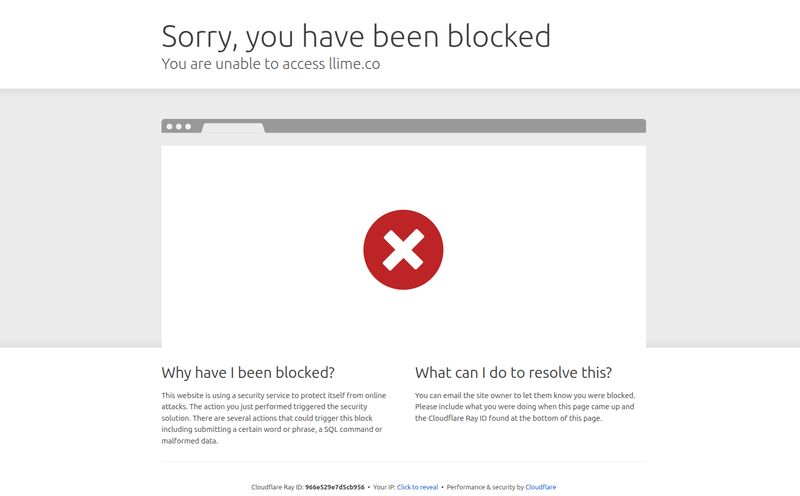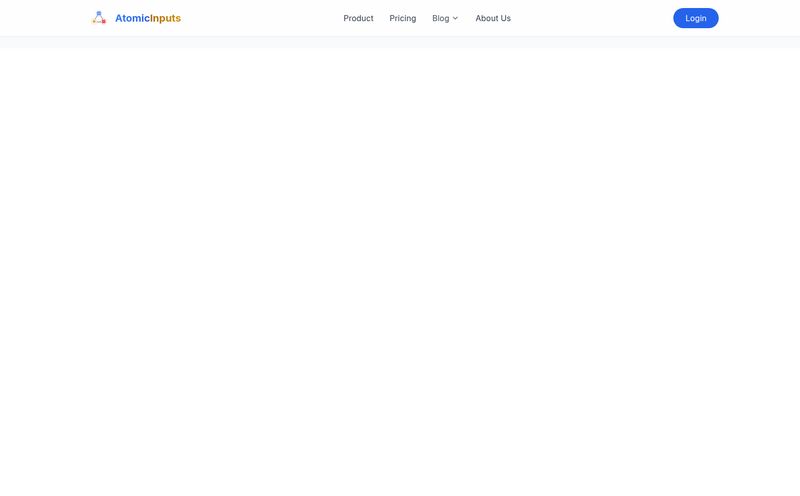Alright, let’s have a little chat. If you’ve spent any time in the data science trenches, you know the routine. You’ve got your Jupyter Notebooks open in one window, a terminal wrestling with Python environments in another, your data sitting in a random AWS S3 bucket, and you’re trying to coordinate with your team over Slack or, god forbid, email chains with subject lines like "Re: Fwd: model_final_v3_USE_THIS_ONE.ipynb".
It’s a chaotic symphony of tabs and tools. We've all been there. It’s the digital equivalent of trying to cook a gourmet meal in four different kitchens at once.
So, whenever a new platform pops up claiming it can unify this mess, my ears perk up. I’m skeptical, of course. I’ve been burned by “all-in-one solutions” before. But I’m also hopeful. Which brings me to the latest contender I’ve been looking at: Starclouds.
The name itself is ambitious, evoking images of vast, interconnected data points. But does it live up to the hype? I spent some time digging through their site, and here’s my honest-to-goodness first take.
So, What's the Big Idea Behind Starclouds?
At its core, Starclouds isn't just trying to be another place to run a notebook. It’s positioning itself as a collaborative environment. A shared workshop where different kinds of data folks can hang out and build cool stuff together. The homepage explicitly calls out three groups: Learners, Developers, and Researchers.
This isn’t just a tool; it's trying to be a community. It feels less like a sterile lab and more like a bustling town square for data nerds. Think of it as a potential hybrid of GitHub for project management, Kaggle for datasets and competition, and Stack Overflow for community support, all under one roof. A bold vision, for sure.

Visit Starclouds
Breaking Down the Core Features
A platform is only as good as its tools. Starclouds seems to hang its hat on four main pillars. Let's poke at them one by one.
The Data Science Workspace: Your Lab in the Cloud
This is the centerpiece. A cloud-based environment for analysis and model training. For anyone who has ever uttered the words "conda dependency hell," this is music to your ears. The idea of just logging in from any machine—your laptop, a library computer, your tablet on the couch—and having your entire setup ready to go is, frankly, beautiful. No more "it works on my machine!" excuses. This democratizes access to powerful tools, and I’m all for it.
A Galaxy of Datasets
Data is the fuel for everything we do. Sourcing, cleaning, and managing datasets can be a project in itself. Starclouds offers a built-in repository of datasets. Now, the platform statistics on their site are a little... curious. 142 Datasets, 142 Projects, 142 Forum Discussions. Someone over there either really loves the number 142, or the site is so new the stats are just placeholders. I'm guessing the latter.
Regardless, the promise is what matters. Having a library of ready-to-use datasets integrated directly into your workspace is a massive time-saver. It lowers the barrier to entry for learners and speeds up the prototyping phase for seasoned developers.
Managing Your Projects Like a Professional
Here’s where things get interesting. The 'Projects' feature seems to be more than just a code repository. It's about managing the entire data science lifecycle. You can collaborate with team members, version your work, and showcase your achievements. This could be the antidote to the messy folder filled with dozens of slightly different notebook versions. A single source of truth for a project, from initial exploration to final model? Yes, please.
The Community Forums: More Than a Help Desk
A tool without a community is just a piece of software. A tool with a thriving community is an ecosystem. Starclouds is building in forums from day one, aiming to create a space to ask questions, share insights, and connect with other data people. If they can cultivate a genuinely helpful and non-toxic culture here, it could become one of its strongest assets. We learn from each other, and a dedicated space for that is invaluable.
Who Is This Really Built For?
Starclouds is casting a wide net, but I think the value proposition is slightly different for each of its target groups.
For learners, this is an incredible sandbox. You get a professional-grade environment without the headache of local setup. You can experiment with real datasets, contribute to public projects, and learn from experts in the forums. It’s a safe place to fail, learn, and grow.
For developers, it’s a portfolio and a workbench rolled into one. You can build cutting-edge projects and then showcase them directly on your profile. Imagine sending a potential employer a single link to your Starclouds profile where they can see your code, your analysis, and your collaborative projects. That’s powerful stuff.
And for researchers, the collaborative aspect is huge. It has the potential to break down the silos that often exist in academia. A shared space to access vast datasets, collaborate on groundbreaking work, and share findings with a global community could seriously accelerate the pace of innovation.
The Money Question and Potential Hurdles
Okay, let's talk about the elephant in the room. There’s no pricing page. As an old hand in this industry, that usually means one of a few things: they're still in beta, they're planning a classic freemium model, or they're focused on enterprise first. My money is on a tiered system: a generous free tier for public work and students, with paid tiers for private projects, more compute power, and advanced team features. That's the standard playbook, and it generally works.
The other consideration is the learning curve. The website mentions one might be required to fully use all the features, and that's not a bad thing. Any powerful tool requires some getting used to. I’d be more worried if they claimed it was so simple a child could use it. Data science is complex; the tools should be capable, not necessarily easy.
My Final Verdict: Should You Hop on the Starclouds Ship?
I’m cautiously optimistic. I really am. The vision behind Starclouds is the right one. The industry is crying out for better, more integrated collaborative tools. The pain points it aims to solve are very, very real.
Of course, it’s entering a crowded field. It'll be going up against established players like Google Colab, Kaggle Notebooks, and various other cloud platforms. Its success will hinge on execution, community building, and offering a truly seamless experience that makes the chaos of our current workflows feel obsolete.
I haven't gotten my hands on the dashboard yet, but based on the blueprint they've laid out, I'm genuinely intrigued. Starclouds is a platform I’ll be keeping a close eye on. And you probably should too.
Frequently Asked Questions about Starclouds
What is Starclouds in simple terms?
Think of it as an online, all-in-one workspace for data science. It combines a coding environment (like Jupyter), a place to find datasets, project management tools, and a community forum so you can collaborate, learn, and build projects without juggling a dozen different apps.
Is Starclouds free to use?
The website doesn't currently show a pricing page. It's likely they will offer a free tier, especially for public projects and learners, with paid options for private work, more powerful computing resources, or advanced features for teams. This is a common model for platforms like this.
How is Starclouds different from Kaggle?
While both offer notebooks and datasets, Starclouds appears to be focused more on the entire project workflow and ongoing collaboration. Kaggle is heavily centered around competitions and individual learning. Starclouds seems to be aiming for a more holistic project management and team-based development experience, in addition to the learning and dataset components.
Is Starclouds a good platform for data science beginners?
Absolutely. It seems ideal for beginners. It removes teh major initial hurdle of setting up a complex local development environment. With a cloud workspace, integrated datasets, and community forums, it provides a supportive ecosystem for someone just starting their data science education.
Can I use my own private data on Starclouds?
While not explicitly stated, it's highly probable that this functionality would be available, most likely as part of a paid or premium subscription tier. The ability to work on private projects and proprietary data is a key requirement for most professional developers and researchers.
Final Thoughts Before We Go
The promise of a unified platform is always tempting. Starclouds is making a strong play to be that central hub for data science work. The foundation is solid, the vision is clear, and the need is definitely there. Now, it's all about the execution. Let's see if they can build the vibrant star system they're aiming for.
Reference and Sources
The official homepage for the platform (note: placeholder link): Starclouds Official Website
A great article on the importance of collaborative tools in data science from Towards Data Science: The Importance of Collaboration in Data Science



